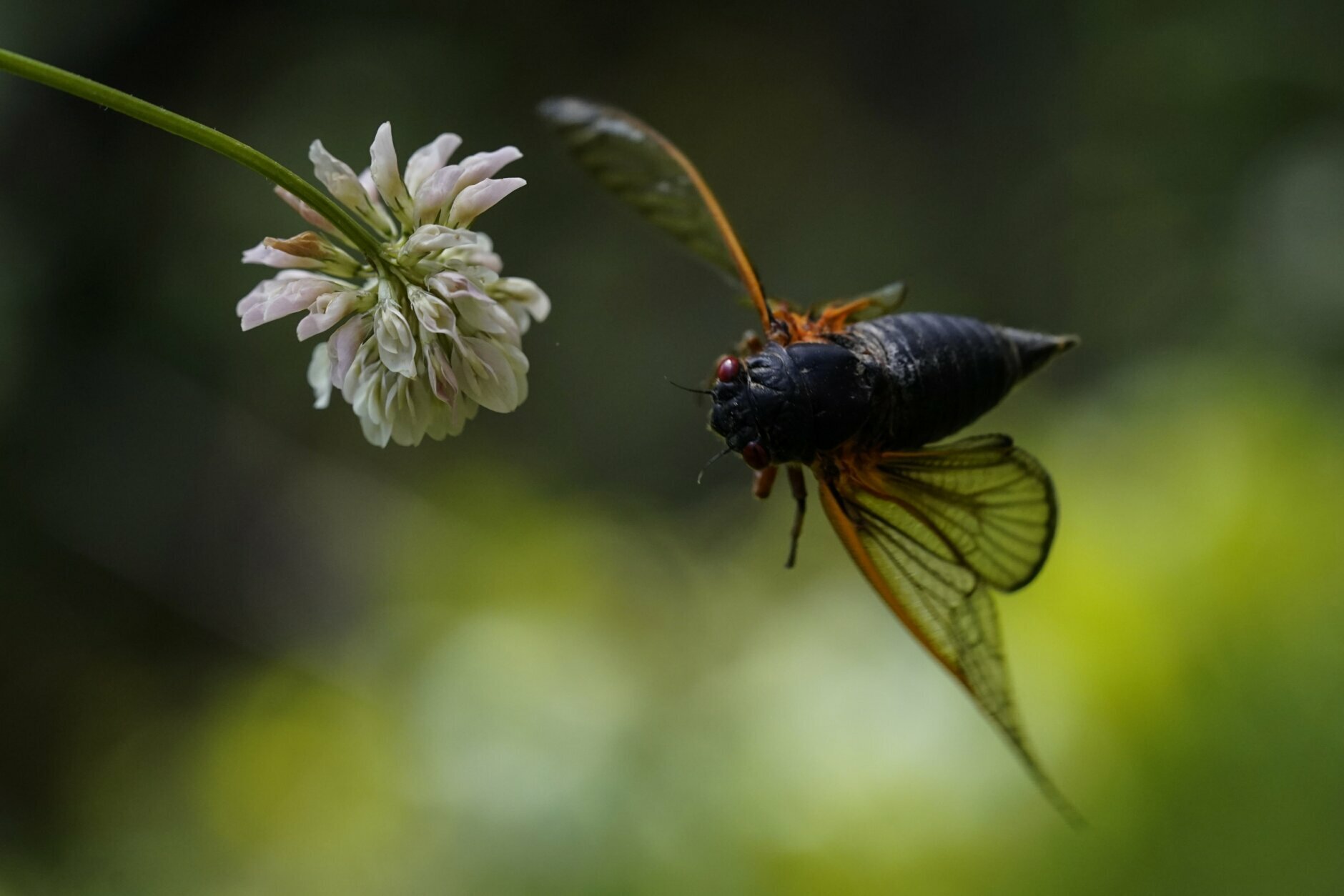
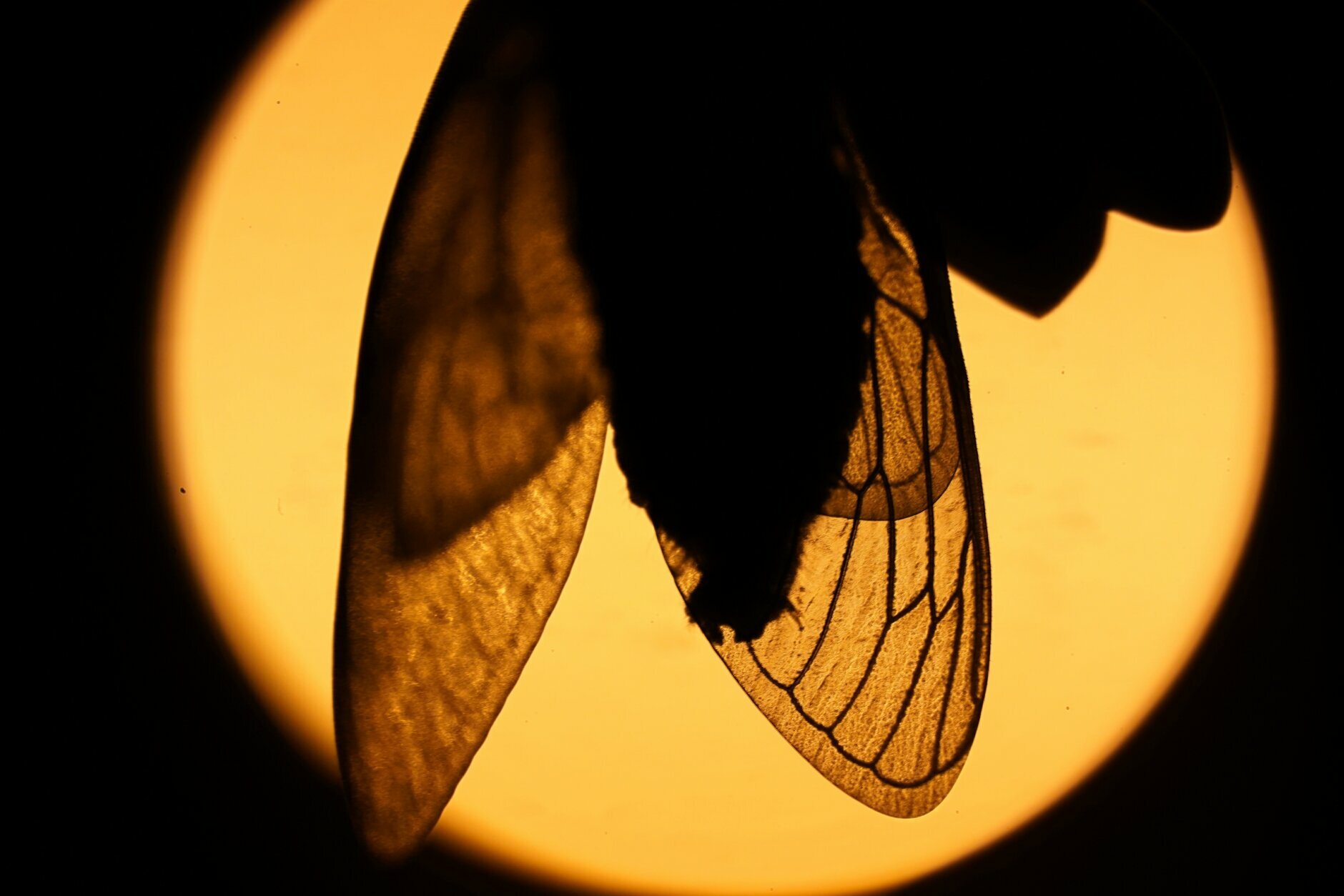
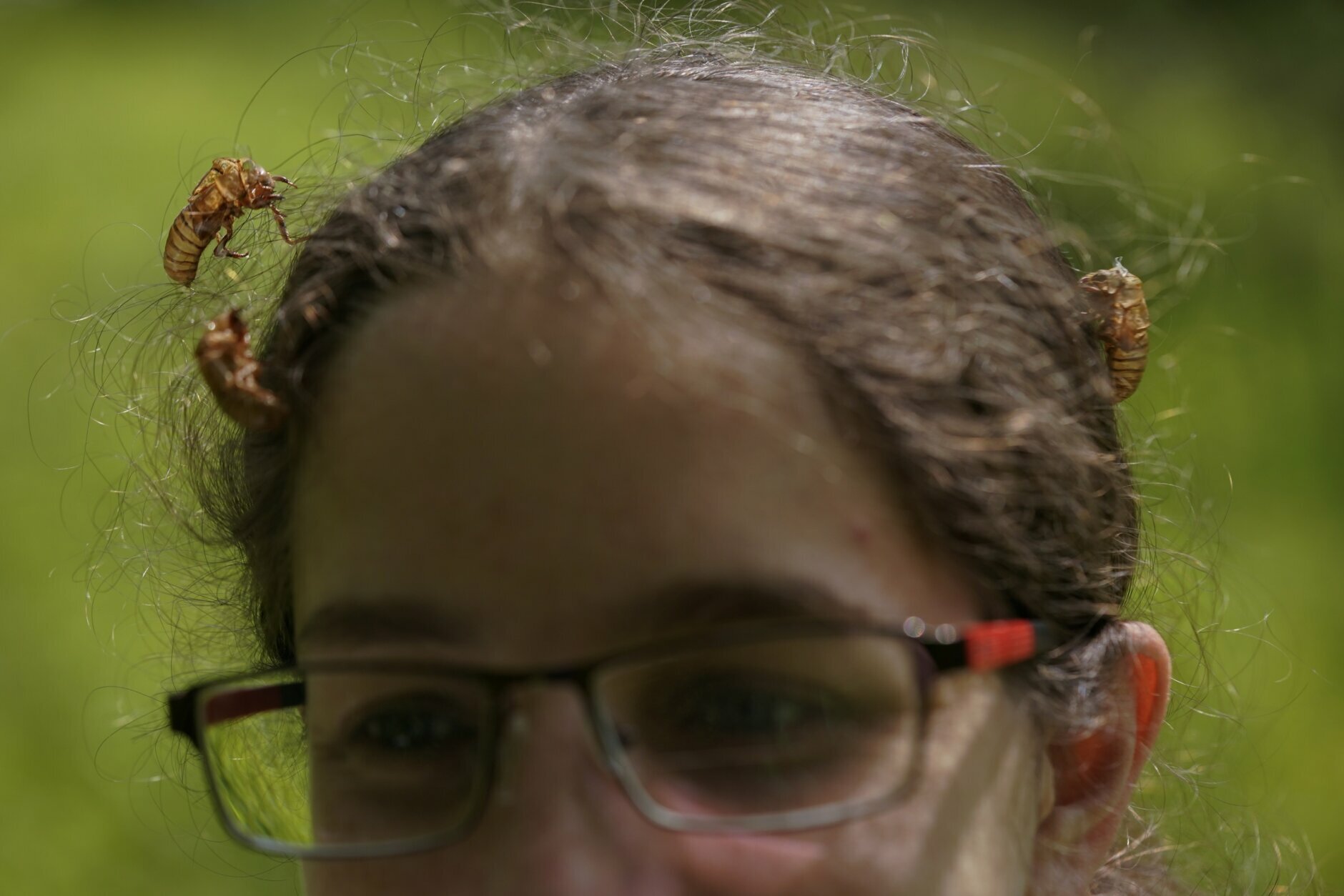
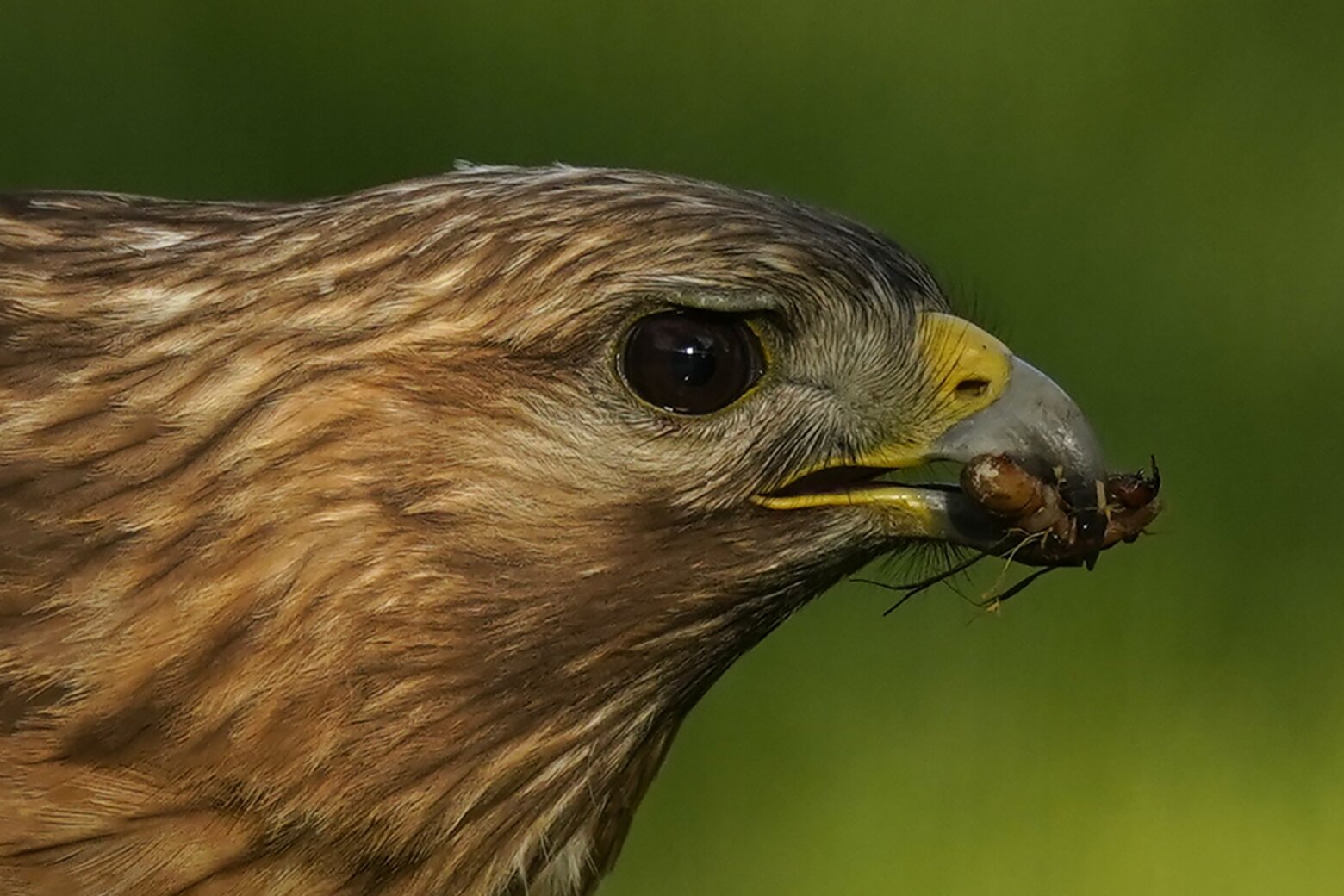
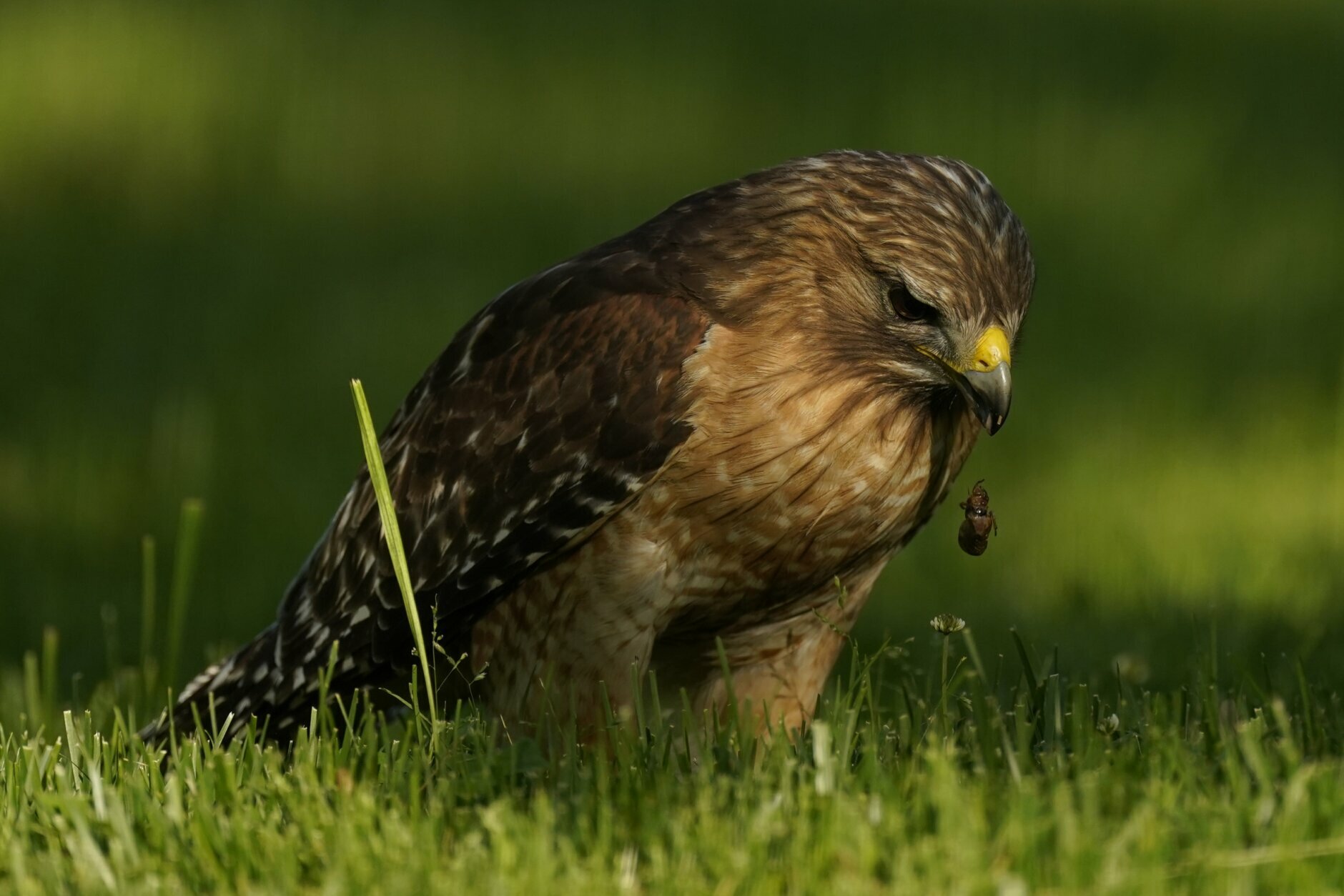
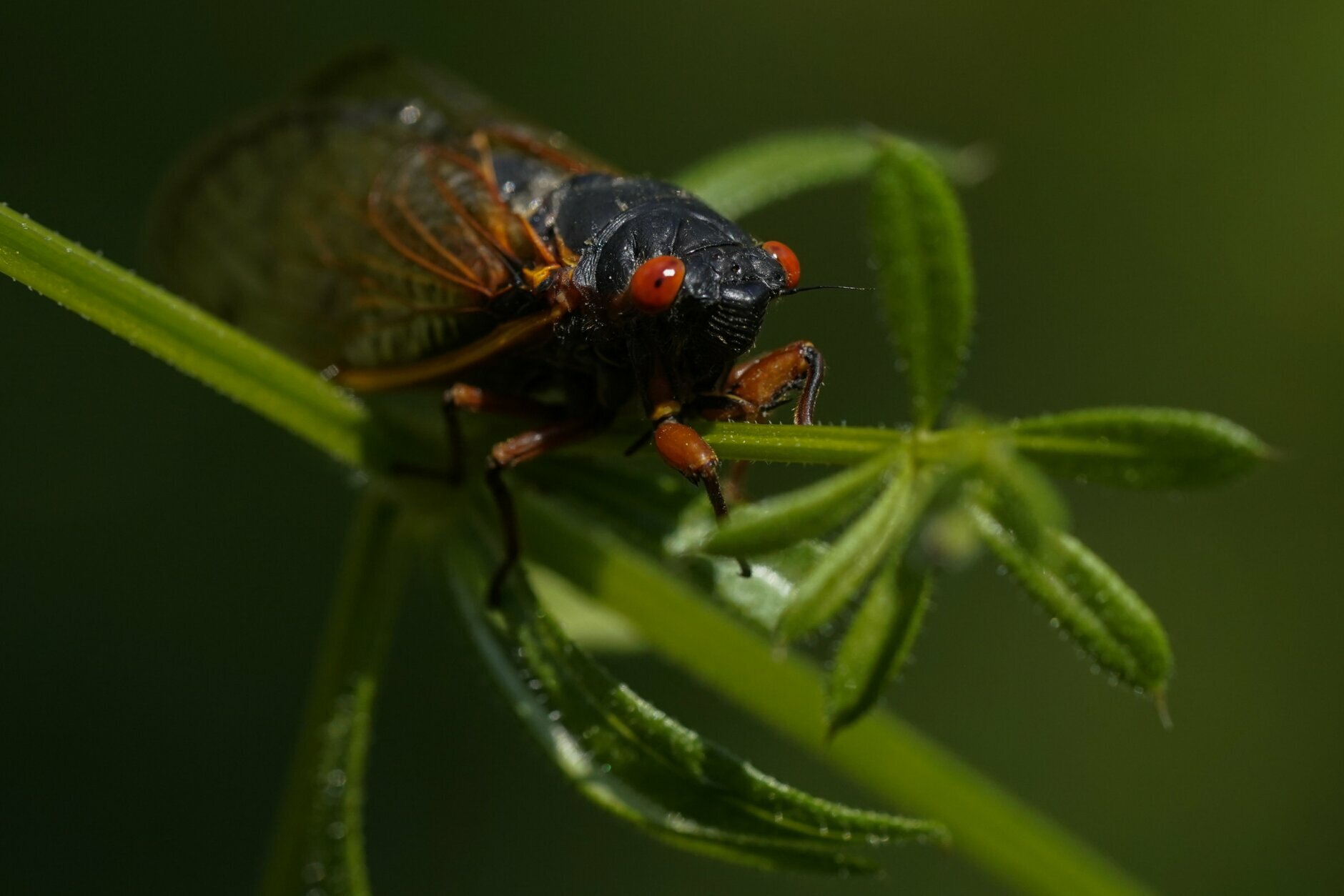
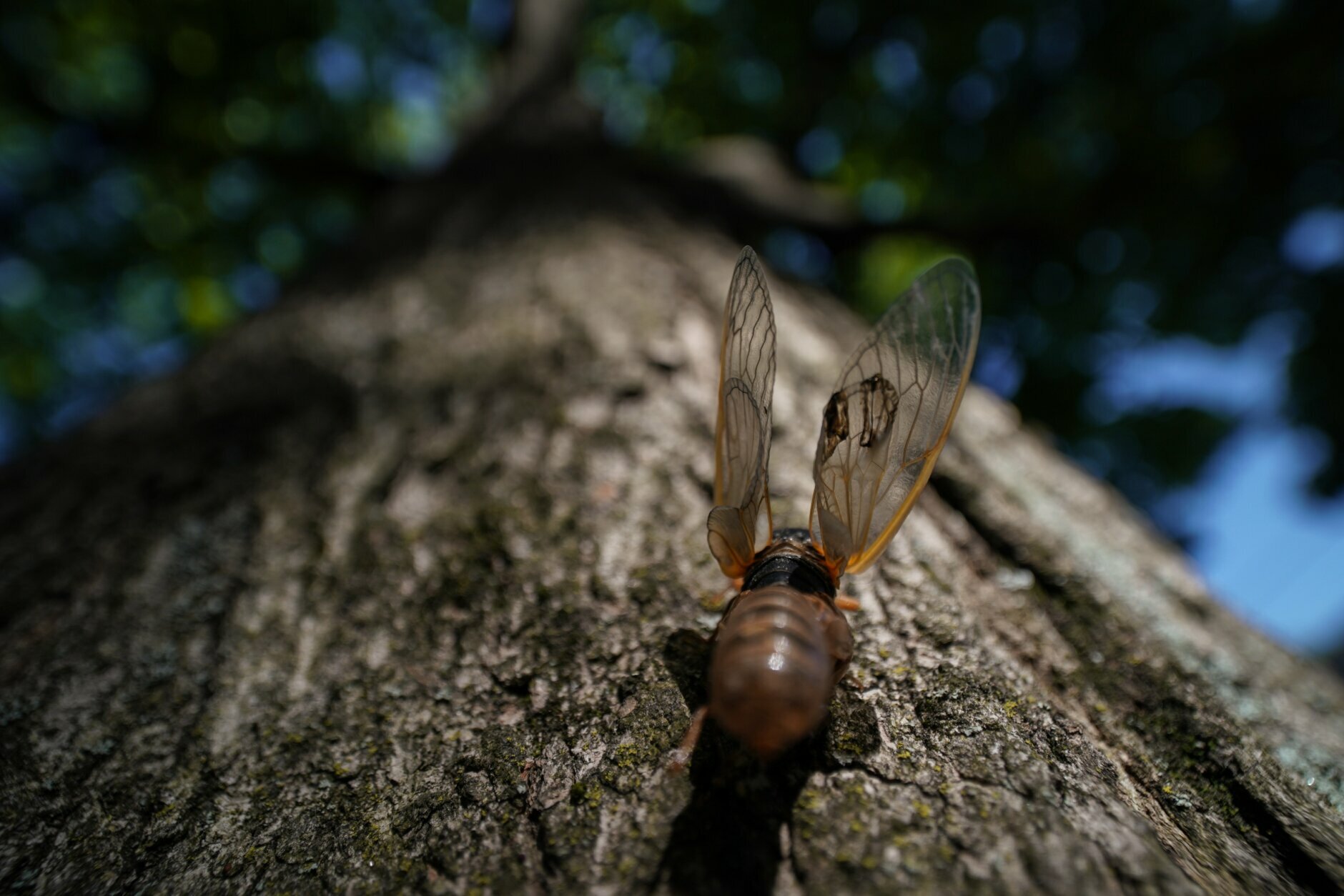
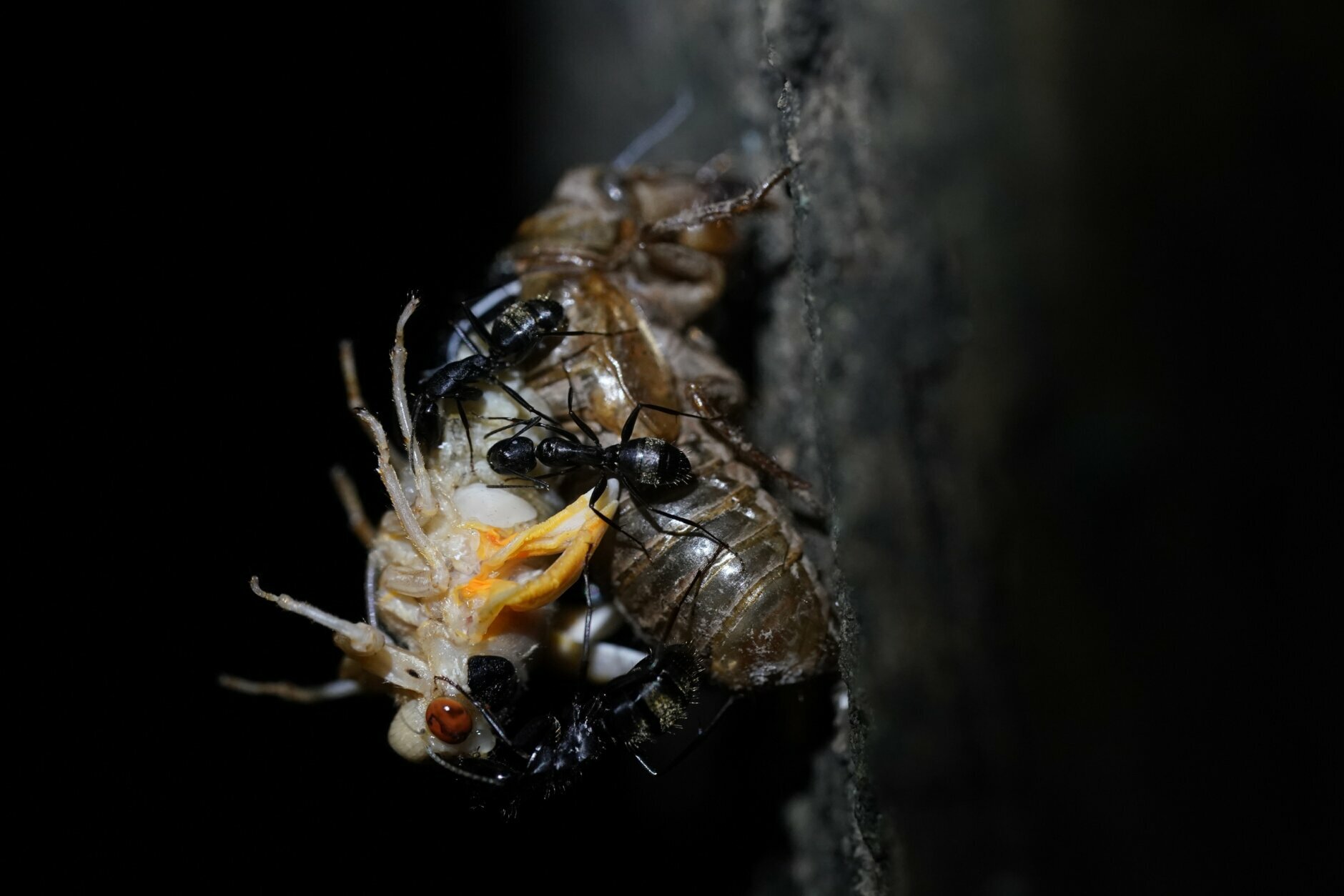
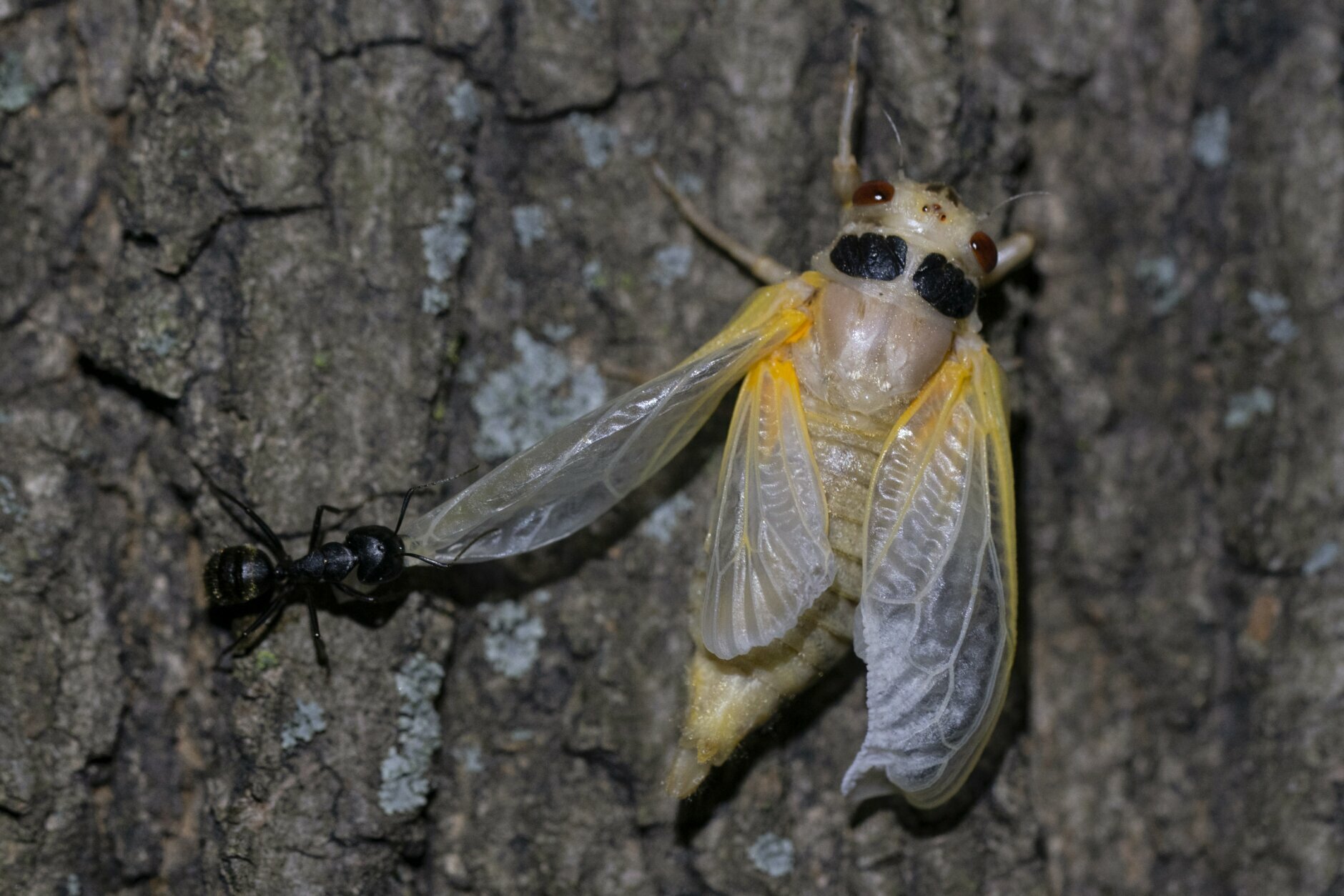
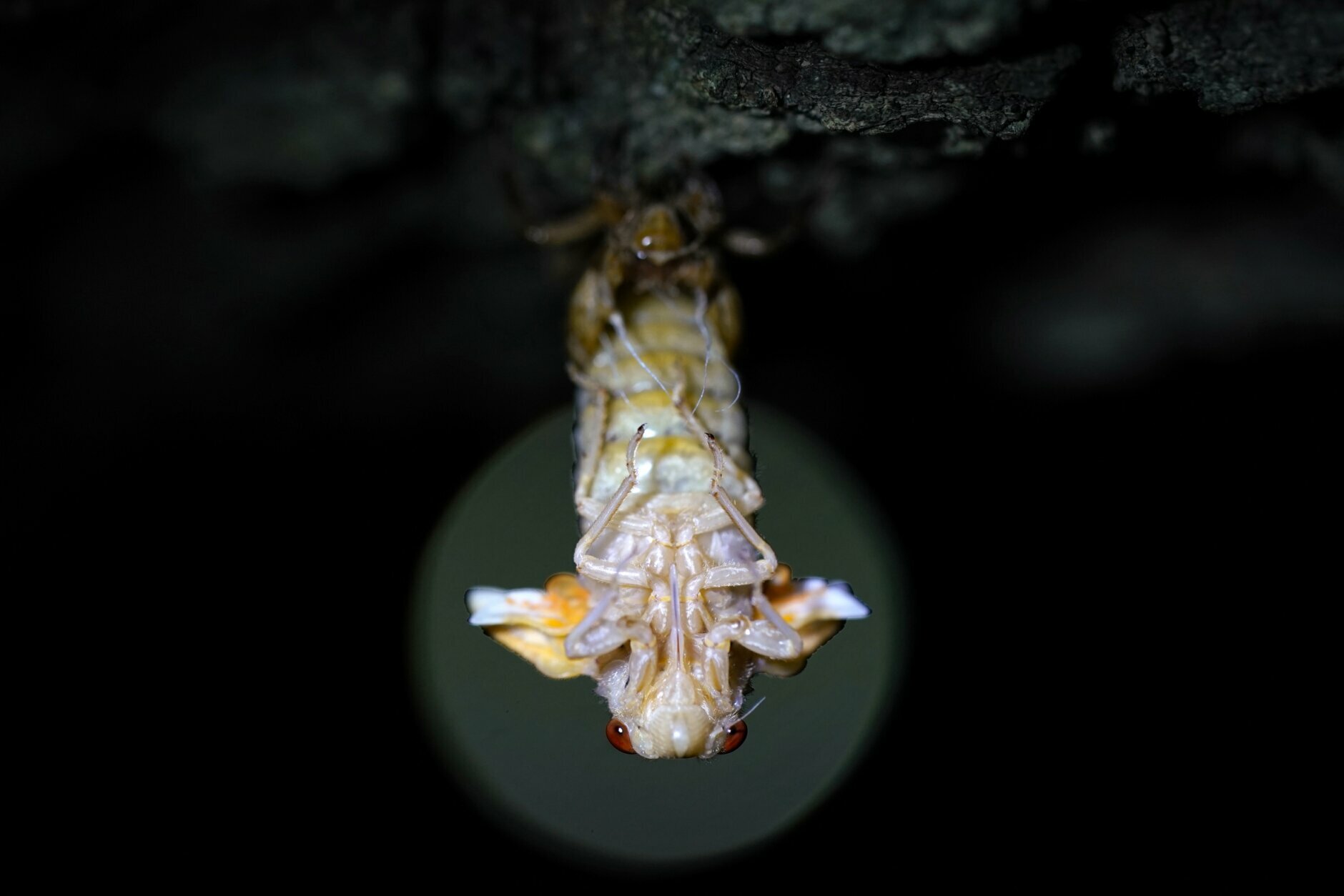
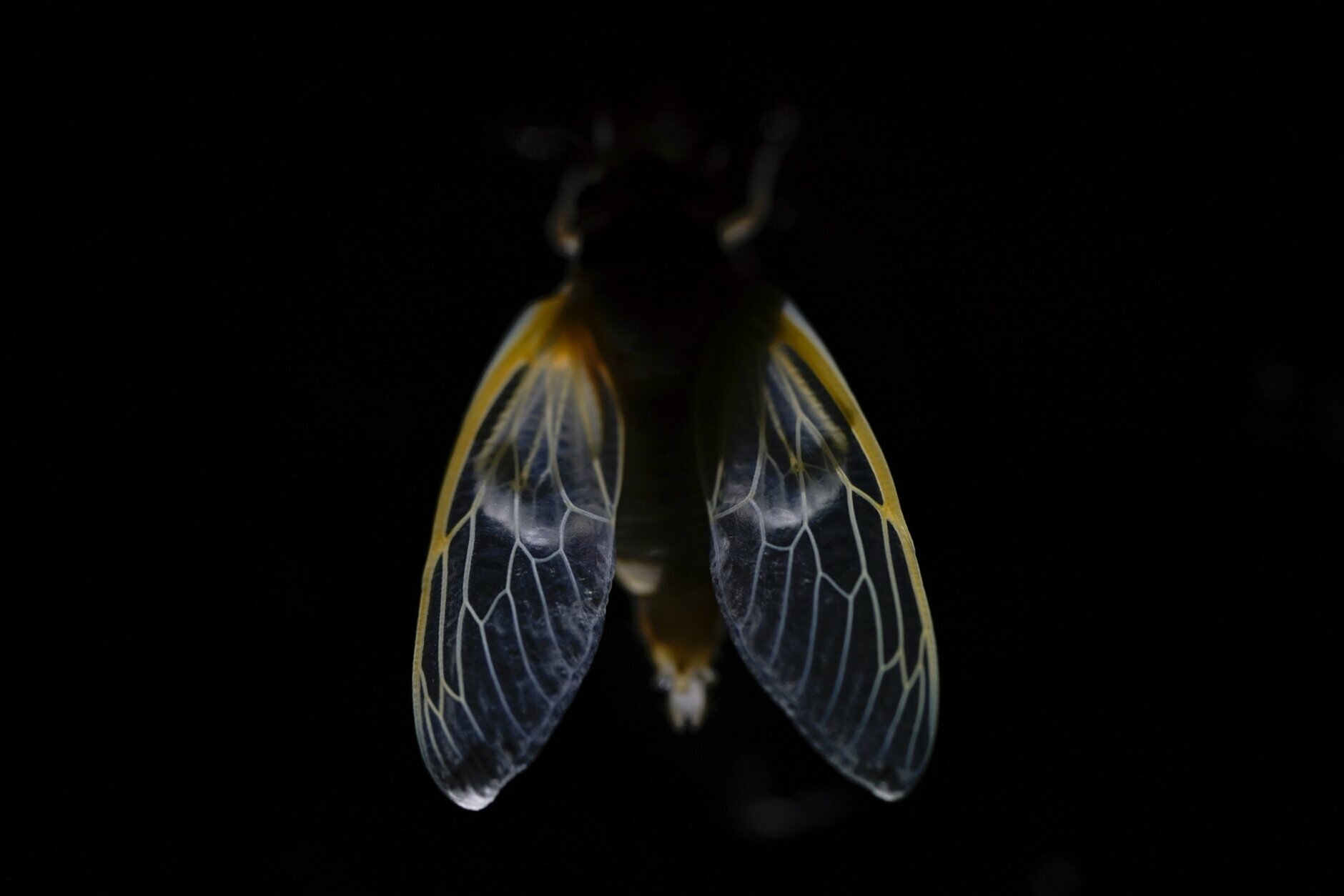
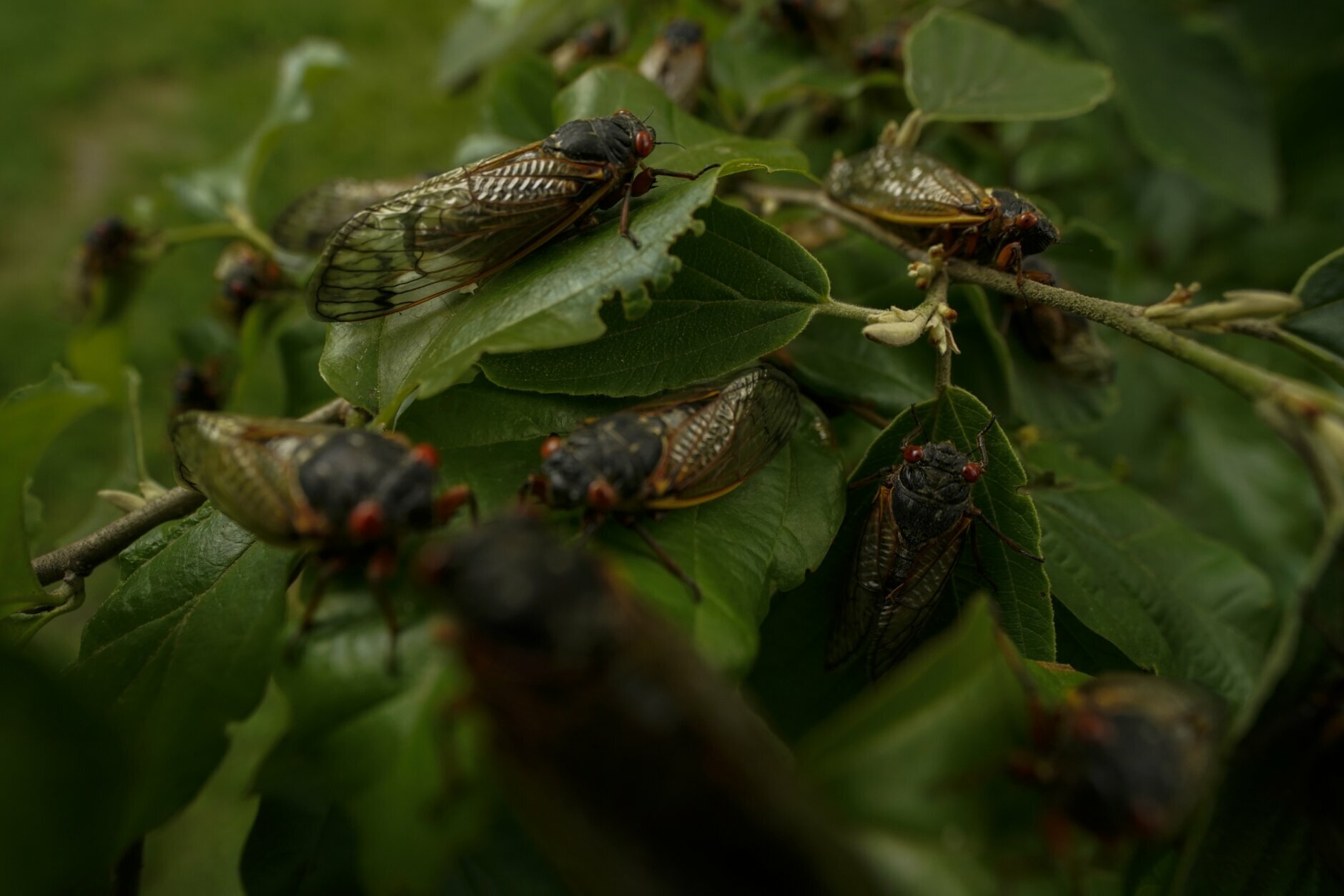
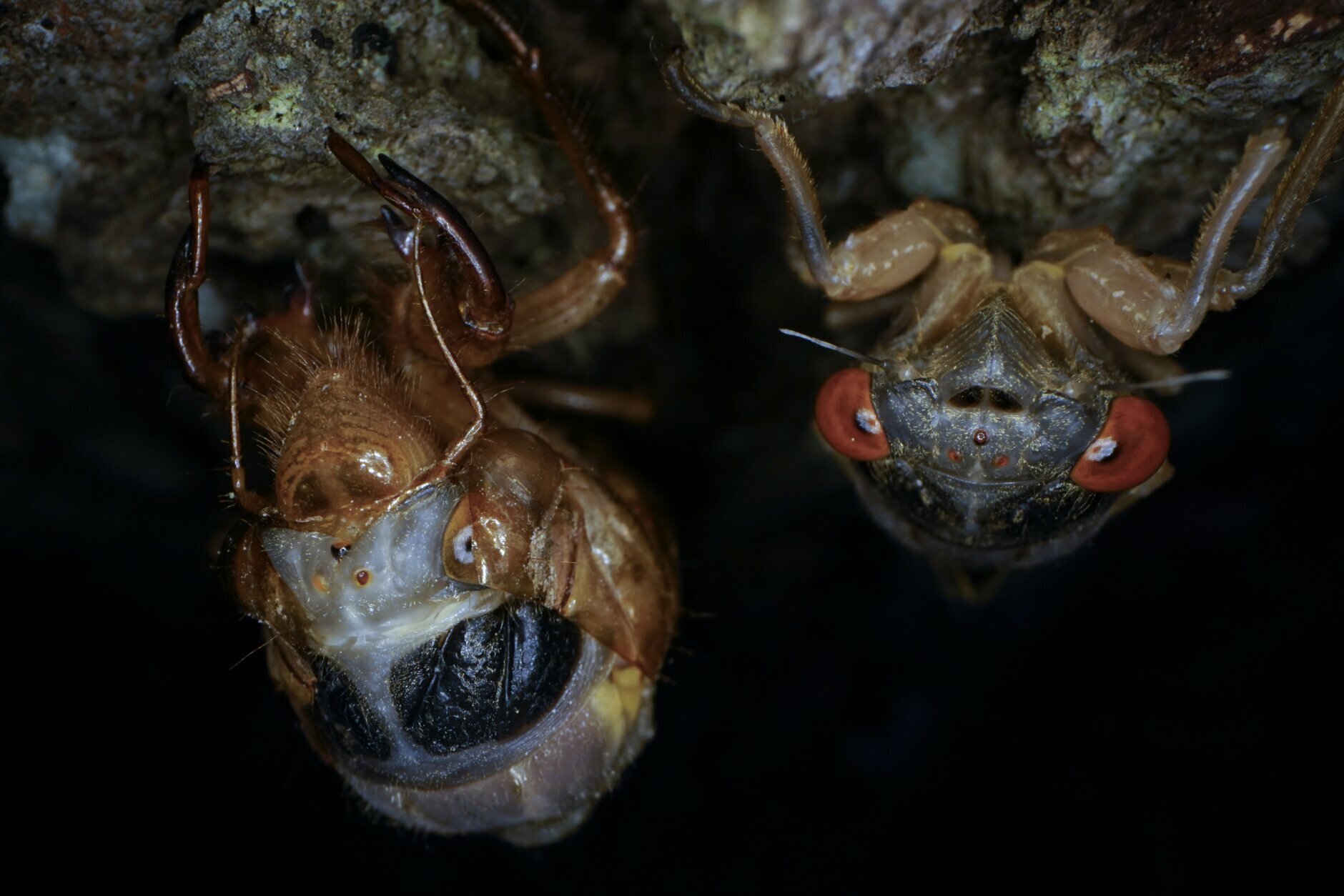
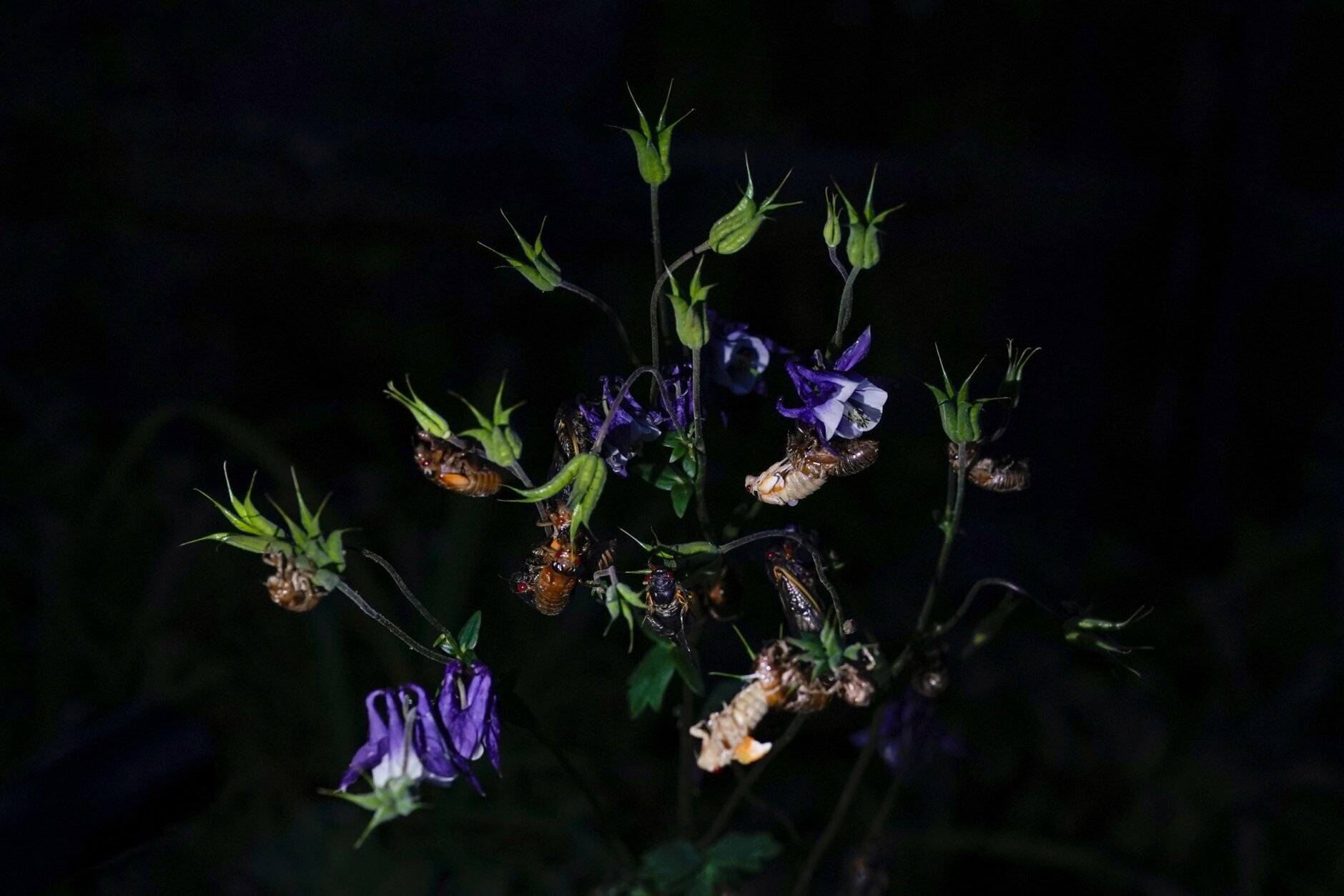
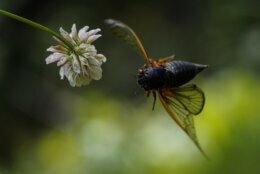
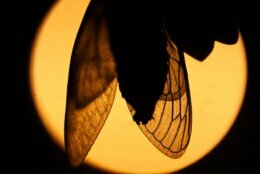
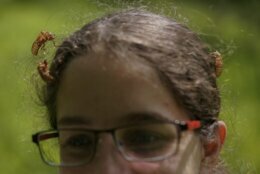
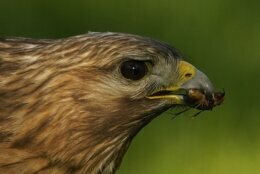

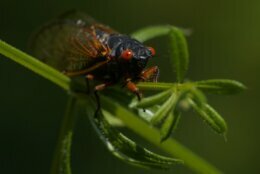
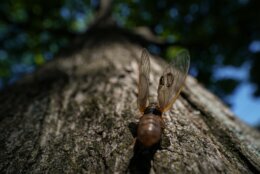
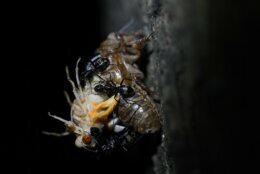
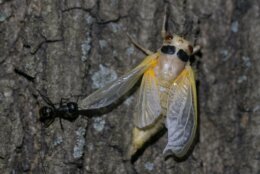
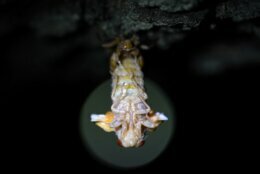
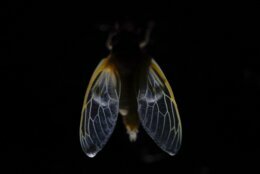
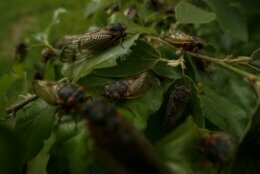
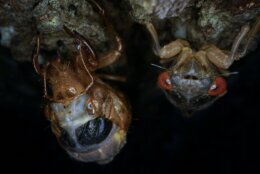
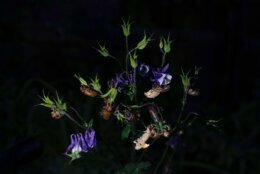
The cicada occupation is just getting started.
Some of the red-eyed flying insects, which come out once every 17 years, have begun to emerge. But bug experts say you ain’t seen nothing yet.
This is Brood X (as in the Roman numeral 10), one of the largest groups of periodic cicadas. Some places already are overloaded, with singing bugs covering walls and trees. Elsewhere, the ground hasn’t warmed enough for the cicadas to come out en masse.
But come out they will — by the billions, if not trillions, in 15 states in the East and Midwest. When they emerge from the soil, they shed their exoskeletons on trees and walls, leaving husks in their wake. And they can go everywhere: trees, doorsteps, sidewalks, cars and even on people who don’t shoo them away.
And then there are the eerie songs. The noise can sound like the soundtrack to a bad science fiction movie, but it’s actually the males’ mating call. The creatures are like hormone-hopped teenagers, said University of Maryland bug expert Mike Raupp, whose own neighborhood is already in full cicada explosion.
But other places are still waiting for the chorus and the onslaught, especially if they are farther away from warmer cities, says University of Connecticut bug scientist John Cooley.
Some people are spooked by them. Other people, like Raupp, eat them. Chefs have recipes. The University of Maryland has a cookbook if you are so inclined.
Most of these bugs will get eaten, but not by people. Birds, snakes, dogs, cats and even ants can feast on them.
Cooley says the spectacle is a sign that our ecosystem is still healthy despite climate change and biodiversity loss. These bugs have been coming out like this for millions of years. And the United States — with two small exceptions — is the only place that gets cicadas that come out every 17 or 13 years. Other places get them every year.
Enjoy or fear them while you can.
The bugs will be gone by around July 4, after the female lay eggs in tree branches. The eggs will hatch in July and August, the baby bugs will tumble to ground, burrow below the soil, feed off tree roots and stay hidden until 2038.
___
The Associated Press Health and Science Department receives support from the Howard Hughes Medical Institute’s Department of Science Education. The AP is solely responsible for all content.
Copyright © 2024 The Associated Press. All rights reserved. This material may not be published, broadcast, written or redistributed.







